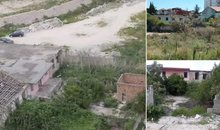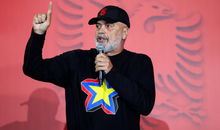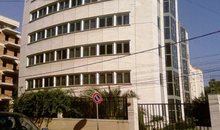
 Flash News
Flash News
The body of a 29-year-old man in Klos is found after 6 days
Arrested a few meters from SPAK, the Special Prosecution seeks 17 years in prison for the drug 'boss'
Giro D'Italia starts today, here are the road axes that will be blocked in Tirana from 13:00-18:00
Who is the new Pope?
Pope Leo XIV greets the faithful for the first time in St. Peter's Square

Marcel Lela
As winter approaches, a big problem for Albanians is expected to be the further increase in the price of electricity. As in any of its wars, Russia is expected to use winter and energy as allies against the West, putting Europe in difficulty. However, Albania is in a slightly unfavorable position regarding this situation, considering that most of the energy is produced in the country, due to the construction of a number of HPPs. Although this does not seem to have had a positive impact on the pockets of Albanian consumers, the electricity bill, which has increased several times so far, is expected to swell even more.
But what is noticeable in this situation is that the 'heroes' in the middle of this energy crisis are the small, non-public HPPs, which are producing more energy than their big state brothers. Specifically, during the first six months of this year, private HPPs have produced 54 percent of all energy produced in the country, saving the state about 200 million euros.
The history of the construction of these HPPs started in 2007 as part of the implementation of the "Albania small regional superpower for renewable energy" strategy. From 2007 to 2013, contracts were signed to construct 423 small, medium, and large HPPs. But this strategy was vehemently opposed by the opposition of that time. Edi Rama called this another trick of Sali Berisha. Apparently, this "fraud" is producing a solution for Albania in the worst days of the energy crisis that Europe is facing. A solution that the government that has received the votes of the citizens has the duty to provide.
What started in the span of six years (2007-2013) as a strategy to exploit rich water resources in favor of local energy production, and was met with great opposition, today we see that it has been the foundation of a policy long term that is bearing fruit.
In the next confrontation, where Berisha returns as the main opposition, Edi Rama, although at the head of the government, is again politically inferior to the opponent. Able to produce a facade of jokes, concerts, and parades, but no long-term solutions and policies, Rama finds himself facing a Berisha who has no choice but to let his 'big works' policies fight him.
Berisha returns as a Hamiltonian, a man of economic policies of great works and national interest, which have already given him the evidence. In front of him is a government that in the middle of an energy crisis, the only solution for citizens is advice to stay as long as possible in bars and wash clothes at 30 degrees; which brings to mind the leader of Venezuela, Hugo Chavez, who ordered his subjects to go to the bathroom with a flashlight.
Latest news

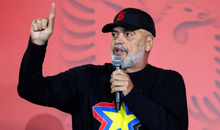
Is Rama ready to become the next Hoxha?
2025-05-09 13:50:12
Election materials arrive in Kukës, Has and Tropoja
2025-05-09 13:30:20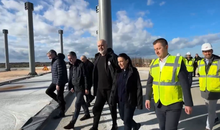
Electoral flight to Vlora
2025-05-09 13:18:04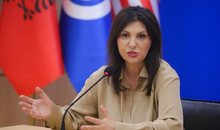

IdentiTek offices open on Saturdays
2025-05-09 13:03:13
Will artificial intelligence help us talk to animals?
2025-05-09 12:55:58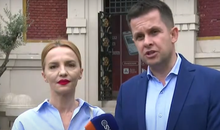

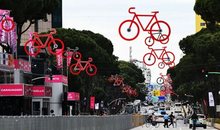

Rama's fourth act: between Brussels and the Mafia
2025-05-09 12:12:47
The body of a 29-year-old man in Klos is found after 6 days
2025-05-09 12:01:27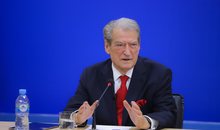
Berisha: After May 12, this opposition will become the majority in Albania
2025-05-09 11:52:37
Leo XIV celebrates his first Mass as Pope
2025-05-09 11:42:34
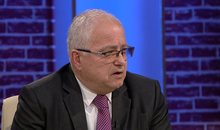
Spaho denounces: SP candidate in Pogradec gives 100 thousand lek for the vote
2025-05-09 11:27:26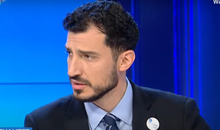
Mustafaj: Proud of the worthy campaign of the DP
2025-05-09 11:22:20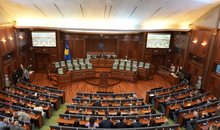
Constitution fails again, Kosovo still without a new Assembly
2025-05-09 11:06:55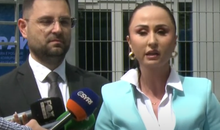





"Votes have no price", the US embassy in Tirana 'slaps' Rama
2025-05-09 10:06:49

Two young men arrested for supplying criminal groups with firearms
2025-05-09 09:45:19
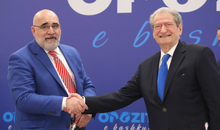



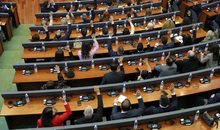


Foreign exchange/ How much foreign currencies are bought and sold today
2025-05-09 08:19:18
The gift that Berisha gave to Rama 'live'
2025-05-09 08:13:51
3 signs that show you are spiritually protected
2025-05-09 08:05:39

Bars can't hold back anymore, start increasing coffee prices, 4.7% more in April
2025-05-09 07:46:49

Horoscope, what do the stars have in store for you today?
2025-05-09 07:22:06
Unstable weather, afternoon brings rain
2025-05-09 07:01:29
Morning Post/ In 2 lines: What mattered yesterday in Albania
2025-05-09 06:45:46

How did LaCivita change the DP campaign? Berisha: He studied the opponent
2025-05-08 22:49:51

David defeats Goliath
2025-05-08 22:15:50

Journalist: There are SPAK infiltrators in party headquarters
2025-05-08 21:55:15
Who is the new Pope?
2025-05-08 21:48:13
Berisha finally reveals when he will retire from politics
2025-05-08 21:33:46


LaCivita in Lezha: Albanians will fire Edi Rama from his job
2025-05-08 21:11:20
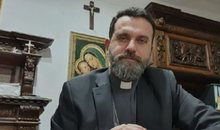

Berisha: LaCivita chose us because he believes in Reagan's program
2025-05-08 20:48:40
He rejected America to serve Pogradec, Genti Çela tells about life in "Elevate"
2025-05-08 20:26:28




Pope Leo XIV greets the faithful for the first time in St. Peter's Square
2025-05-08 19:29:33




Photo session with LaCivitta in Tirana: For Great Albania
2025-05-08 18:40:18
Source: DASH decision a personal victory for Berisha
2025-05-08 18:30:10
Take off those crazy glasses and see where you've taken him?
2025-05-08 18:02:47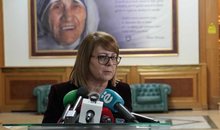
LDK files criminal charges against members of the incumbent Government
2025-05-08 18:02:00

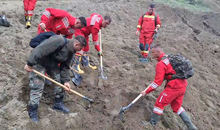
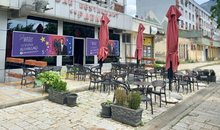



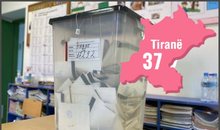
BIRN analysis: Tirana, the determining district for the future majority
2025-05-08 16:04:03




Chris LaCivita's contract with the DP, Berisha: 100% correct and clean
2025-05-08 15:11:11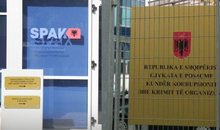
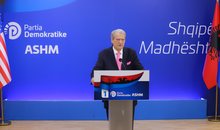
"These are the peak days", Berisha reveals when he will travel to the USA
2025-05-08 14:45:25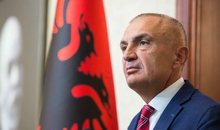
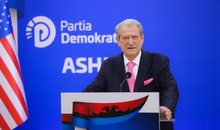
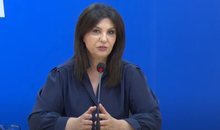
Endless boxes with filled-in ballots, DP demands separation of votes from Greece
2025-05-08 14:11:12


Photo/ Who are the 3 associates of Talo Çela arrested in Dubai?
2025-05-08 13:37:09
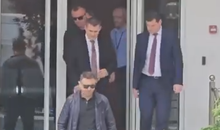
Hetimi për krimet zgjedhore, Altin Dumani zbarkon në Prokurorinë e Shkodrës
2025-05-08 13:06:21
DASH paves the way for Berisha, Alizoti: Great news on the eve of Great Albania!
2025-05-08 13:03:48

"Freedom works", DP welcomes the US position
2025-05-08 12:48:07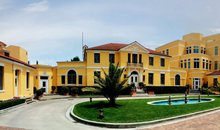
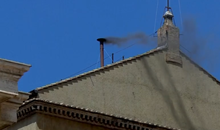
Black smoke rises from the Sistine Chapel, the Vatican still without a Pope
2025-05-08 12:26:18